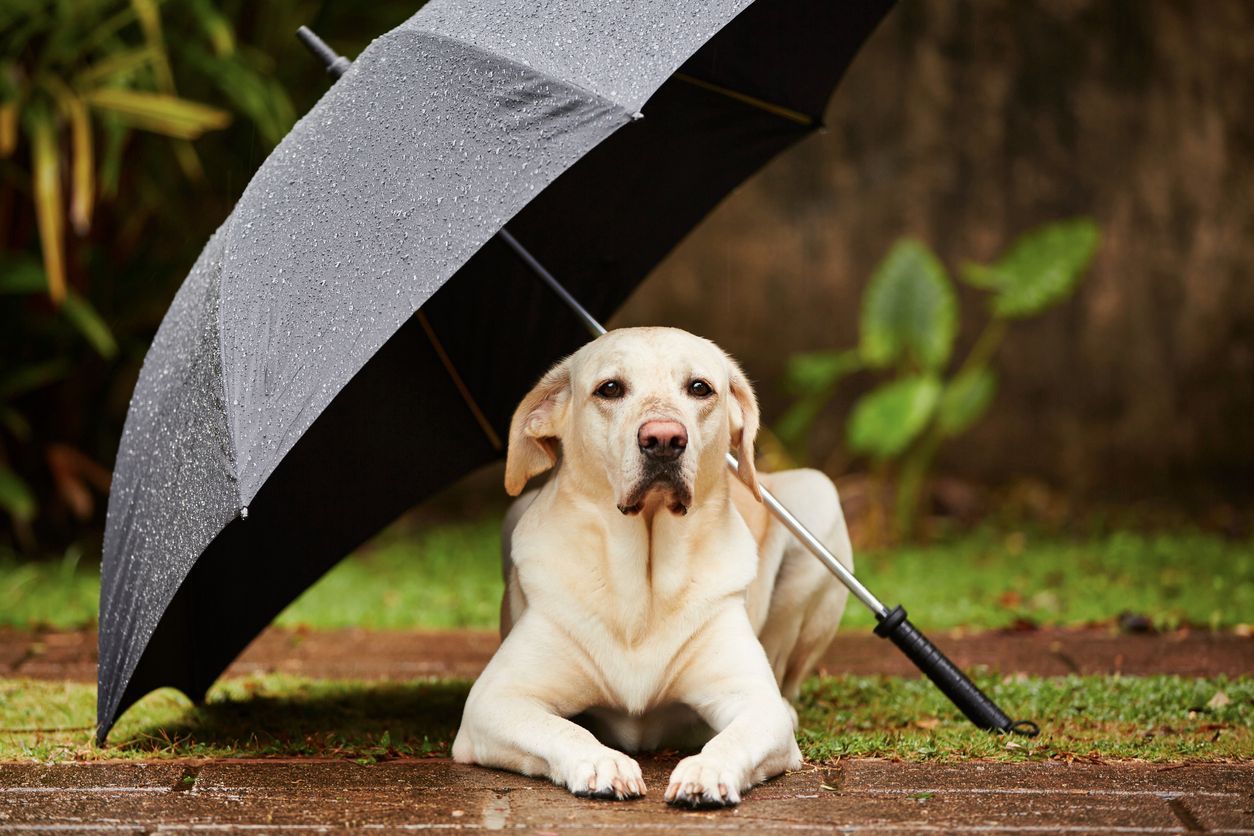Should your dog be wearing sunglasses?

Most dogs actually won’t benefit from sunglasses in the same way that humans do. Healthy dogs living a typical lifestyle don’t need sunglasses, so sunglasses are strictly for fun and fashion for most dogs. If your dog needs eye protection, your vet will let you know. Here are some examples of situations where dogs may benefit from sunglasses or other eye protection:
Dogs who have visual impairments or are healing from surgery or injury
Dogs who have been diagnosed with eye diseases like pannus, cataracts, glaucoma, cancer, or blurred vision may benefit from eye protection. In most cases, a dog recovering from eye surgery or undergoing treatment for an ocular disease is best kept indoors, so sunglasses aren’t really part of the solution. Most dogs going through something like that will wear the plastic “cone of shame” on their neck to protect their head and eyes, rather than sunglasses or goggles. This is because the cone provides more complete protection and it is easier for a dog to adjust to wearing a cone than sunglasses. A dog untrained to wear sunglasses is more likely to injure itself trying to get the sunglasses off. A cone may be annoying to your dog, but it is designed to protect your dog’s eyes and prevent complications. Since a cone will not provide protection from sun, light, or airborne particles (like sunglasses or goggles will), it’s best to keep a dog with specific health conditions like these indoors.
Working dogs, search and rescue dogs, or police dogs
Working dogs, such as cattle dogs, search and rescue dogs, and police dogs, are more likely to come into contact with chemicals, airborne particles, dust, sand, heavy brush, harsh environments, and other risky conditions that increase the likelihood of eye injuries.
Active dogs who participate in outdoor activities
Dogs who accompany their owners on high-speed activities, like boating or cycling, can increase the chance of abrasion, cuts, or other irritation to their eyes from objects, small particles, wind, or long terms of exposure to the sun. Dogs who live and work outdoors at high elevations are exposed to more UV radiation and are more likely to develop eye problems as a result. Canine sunglasses may be helpful for these active pups.
Dogs that are more prone to eye injuries
Dog breeds with large, protruding eyes, like pugs and chihuahuas, may benefit from wearing eye protection. Short-legged dogs like dachshunds may also benefit because they are low to the ground and more likely to come into contact with potentially sharp or irritating objects.
Ultimately, you should consult a veterinarian to determine whether wearing sunglasses is right for your dog, or if there may be an alternate modification to their environment or lifestyle you can make to protect their eyes.
How to train your dog to wear sunglasses
If you and your vet decide sunglasses are a good option to support your dog’s long term eye health, make sure to select a pair of sunglasses specifically designed to fit a canine face. Human sunglasses won’t fit a dog's face very well, making them less effective for your furry friend. Even the most well-fitted canine sunglasses may take your dog some time to get used to, just like any other unfamiliar accessory. Goggle-style sunglasses are popular because they provide full coverage for the eyes and have a headband to hold them securely in place. Get your dog used to wearing their new sunglasses by letting them model them for just a few minutes at a time, then give a treat. Increase the amount of time your dog is wearing the glasses until they are comfortable enough to leave them on. Some dogs may never get used to wearing sunglasses and will continue to paw at their face or rub their face on the ground. In this case, it is better to remove the sunglasses so your pup does not end up getting hurt. Your dog should always be supervised when wearing sunglasses.
Consult a vet if your dog is showing signs of eye problems
If your dog is showing signs of eye problems or eye irritation, schedule an online virtual care appointment with a Vetster vet to get the information you need to decide what to do next. Some eye problems require emergency care, so don’t delay seeking care. Do not attempt to diagnose your dog yourself. Some vision concerns may be managed successfully if caught early, such as glaucoma. In many cases, canine glaucoma is not preventable, but if it is left untreated, it can cause blindness. Eye problems may present in your dog as:
-
Squinting
-
Watery eye(s)
-
Rubbing their eyes with their paws or against other objects
-
Swollen eyelids
-
Redness of the lining around the eyeball
-
Blue haze over the surface of the eye
-
Avoiding light (photosensitivity)
Various treatment options can alleviate the pain your dog might be feeling, as well as address symptoms and keep the disease, if present, from getting worse. When you book a virtual vet appointment, a vet can assess your dog's situation and determine if sunglasses may be a good option for them.










